Religious freedom in Iran worsened in 2022, as it does every year in the country, and affecting the lives of religious minorities of every background. The following special IranWire report looks at the situation facing members of each minority religious community – including groups recognized by the Islamic Republic, and those not considered to be legitimate religious communities under Iran's constitution – and analyses how the lives of these communities became more difficult last year.
Many of the same repressions and discrimination experienced by minorities in the past have continued to afflict religious minorities. Iranian citizens from minority groups have endured arbitrary detentions and unjust sentences, property confiscations and home destructions, the denial of citizenship rights such as education, and widespread hate speech, and the Baha’is in particular faced a crackdown in arrests and other forms of persecution.
"Jews, Christians, Baha'is and others all have human rights"
But despite all this there were also some positive efforts to promote religious coexistence. The most visible of these appeared when a Sunni cleric in the Iranian city of Zahedan, Molavi Abdolhamid Ismaeelzahi, during two Friday prayers sermons this past December, became the latest public figure to break an old taboo about the rights of Baha’is and other religious minorities in the Islamic Republic.
“We sympathize with all Iranians and all Iranians are dear to us, Muslims and non-Muslims alike,” Abdolhamid said. "We must respect human rights and humanity. Jews, Christians, Baha'is and others all have rights and human rights and citizenship in this country, and the law has not taken away the nationality of any person.”
The cleric added that such rights belonged to all Iranians, even if they “did not accept God,” indicating that agnostics and atheists also had to be protected.
Abdolhamid is the most prominent figure in Iran’s Sunni Baluch minority and has criticized the Iranian government several times during the nationwide protests of recent months. On January 20, for example, he called on the government to listen to the “demands of the youth and women” and to stop repressing these groups. He had also, in another speech, called for a secular government that drew on the talents of all Iranians, including Iranians from religious minority backgrounds. And he had previously also said that Baha’is, who since the emergence of the faith in 19th century Iran have been targeted by Iran’s Shia Muslim clerical establishment, should not be “charged with apostasy.”
Branding Baha’is who had been Muslims as “apostates” was one of the first charges brought by the establishment Shia clergy against followers of the new religion when it first emerged in the 19th century.
Minority religious communities in Iran have, to varying degrees, suffered discrimination and even persecution since the 1979 Islamic Revolution. And while Iran’s constitution at least recognizes Sunni Islam, Zoroastrianism, Christianity and Judaism as minority faiths, the Baha’i religion has been targeted and proscribed and its followers persecuted for decades.
The new Islamic Republic executed more than 200 Baha'is in the early 1980s, before moving on to a systematic campaign to block the progress and development of Baha'is in education, commerce, agriculture, and every other walk of life.
Molavi Abdolhami's intervention at the end of last year was, therefore, a rarity. Few prominent clerics in Iran have ever come to the public defense of Baha’is.
Iranian media outlets associated with the Islamic Revolutionary Guards Corp responded to Abdolhamid’s interventions by releasing a series of articles to rebut the cleric’s argument but also to claim that Baha’is did not, in fact, have citizenship rights.
One of the pieces was written by a member of a longstanding anti-Baha’i association called Hojjatieh. Another made the outright claim that Baha’is cooperate with the “Zionist” regime in Israel and, as such, had no rights under Iran’s Sharia law. The allegations repeated tropes which the Iranian authorities have for decades wheeled out against the Baha’i community.
Propaganda and hate speech are, meanwhile, not the only forms of anti-Baha’i persecution, all of which continued and even worsened last year.
A crackdown of historic severity
A widespread and ongoing crackdown against the Baha’is in Iran began on July 31, when the authorities arrested Mahvash Sabet, Fariba Kamalabadi and Afif Naeimi, three of seven Baha’is who had once served on an informal leadership group of the community and who had, in 2007 and 2008, been detained and sentenced to 10 years in prison. IranWire covered the 2018 release of these seven Baha’is.
The three Baha’is and their colleagues had been jailed on charges of disturbing national security through their Baha’i activities, a charge which their lawyer at the time, the Nobel laureate Shirin Ebadi, said at the time was never proven. And yet when Sabet and Kamalabadi were sentenced to another decade in jail, on December 10, it was on the same unfounded charges.
The July arrests led to several dozen more – on top of which the authorities also continued to bar Baha’is from higher education and even to destroy their homes. A court order by the Revolutionary Court in Semnan called for Baha’i properties to be confiscated. And a video filmed in August exposed a huge assault by government agents on Baha’is in the village of Roshankouh, in Mazandaran province, where six Baha’i-owned homes were destroyed.
IranWire also spoke with the historian Moojan Momen to explore the history behind the Islamic Republic’s relentless efforts to cleanse the Baha’i community from Iran and why, at the heart of its ideology, the Iranian government does not consider the Baha’i faith to be a real religion.
In March 2022, in his final report as United Nations Special Rapporteur on the freedom of religion or belief, Ahmed Shaheed decried the criminalization of Baha’is in Iran and a handful of other countries. Dr Shaheed’s report stressed that “State and non-State actors have exploited the identity of religious or belief minorities to further their political, economic, and military objectives,” adding that Baha’is in Iran have been targeted “through hateful rhetoric that seeks to mobilize the public against them and ‘legitimize’ policies and practices that harm them ... authorities and others have accused the Baha'i community of being foreign agents or enemies of the State, including ... Israeli spies.”
Javaid Rahman, meanwhile, the UN Special Rapporteur for the human rights situation in Iran, expressed concern in his January report on the violations of the rights of religious minorities in the Islamic Republic. He noted in particular the forced closing of houses of worship on national security grounds, the repression of a Sunni Baluch rally staged to defend an area used for Sunni community prayers, and the 2021 arrest of at least 53 Christian Iranians. Rahman’s latest report did not cover 2022 figures for religious minority arrests.
Discrimination across the board
A survey run by IranWire in March of last year, meanwhile, showed that religious minorities and non-believers said they had suffered from denial of job opportunities, denial or difficulty in getting permits to set up their own businesses and also denial of the right to an education. Hate speech against individuals, and the minority communities to which they belong, is another significant issue. Some of the respondents also said they had witnessed hate mongering against individuals other than themselves.
Baha’is comprised 35 percent of respondents, followed by Sunni Muslims at 20 percent, atheists and agnostics at more than 11 percent, Jews with 9 percent, Sufis with around 6 percent, Christians with about 6 percent, deists who hold no specific religion at 4 percent, and religiously “undecided” Iranians at about 2 percent.
The survey respondents also said they had been harassed by agents of the Intelligence Ministry and the Revolutionary Guards’ Intelligence Organization – but also that these were outstripped by harassment from clerics and other religious officials. Educational institutions, however, were reported to be a somewhat safer environment for religious minorities.
The Shia Republic of Iran
IranWire also reported last year on a statement by Mehdi Farmanian, vice chancellor for research at the Qom-based University of Religions and Denominations, who claimed at a conference that Sunni Muslims enjoy sufficient academic and religious freedoms in Iran. Our fact-check on the subject found that, while Iran's Sunni community is on the whole free to practice its religion and educate its children in Sunni doctrine in the majority of Iran’s 31 provinces, according to rights protected by Iran’s constitution, in fact this principle is not observed in a consistent manner across the country.
For example, according to the International Quran News Agency, there are 3,439 mosques in Tehran, but none of them belong to the Sunnis. Regime outlets have claimed that there are 10,000 Sunni mosques in Iran. The Zahedan cleric Molavi Abdolhamid, however, has disputed this claim, saying these are just temporary prayer halls and not mosques. Another example of discrimination is the allocation of funds to Shia religious institutions which receive considerable government largesse while Sunni institutions receive no government support. And in terms of educating Sunni youth, there are several reports that Shia clerics even play an outsize role in planning how Sunni schools are established.
Abdolhamid has also claimed that the true size of Iran’s Sunni population may be around 20 percent of the approximately 86 million population – rather than the 5-10 percent stated by the government. IranWire has not been able to verify this claim.
Some of the discrimination against religious minorities is enshrined in the Iranian Constitution. Sunni Muslims, for example, are barred from Iran’s high political offices. Article 107 of the constitution says that no Sunni Muslim can hold the office of Supreme Leader and Articles 115 and 157 bar Sunnis from running for president or chief justice. Article 91 stops “non-Muslims” from attaining membership of the Guardian Council but this, in practice, applies also to Sunni Muslims.
In May of last year, in coverage that demonstrated ongoing challenges for representation affecting Sunni Muslims, IranWire reported on the removal of Sunni government officials in favor of Shia ones in a region of Iran’s Hormozgan province. Sunnis make up 70-80 percent of the population in this province.
News even surfaced in June of the execution of a Sunni cleric – allegedly on drug-related charges – alongside several other Sunni convicts.
Christian converts still targeted – and now Assyrians too
IranWire’s coverage of the situation facing Christians – both the traditional Assyrian Christian community and converts from Islam or other faiths – found that Iran’s crackdown on converts continued even as other Iranians remained under-informed about discrimination against the Christian community.
A webinar featuring several Christian converts now living outside Iran showed that the Islamic Republic reported conversion rates to Christianity may be as high as 19 percent. According to webinar participants, it was the conversion of Persian-speaking Iranians, as distinct from Assyrian Christians whose local vernacular is Neo-Aramaic, that had caused the Islamic Republic to target the convert community.
IranWire reported early in the year on the sentencing to prison of two converts for, it was believed, attending a house church. A similar story regarding three other converts came to light later in the year. And in April the convert Fariba Dalir, who according to Article 18 was one of several converts arrested in the previous few months, was sentenced to prison. One Christian was even sent to prison on Easter Sunday.
Converts were not the only Christians to be persecuted – Assyrians and Armenians were also targeted. IranWire has reported that, after the Mahsa Amini protests began in Iran last year, the authorities began to exert increasing levels of security pressure on the community to prevent them from participating in the movement. One Armenian woman, detained in October, spent 40 days behind bars during which she was subjected to verbal humiliation and sexual harassment. A December report revealed that an Assyrian woman, Bianca Zia, had also been arrested for her part in the protests.
Sufi Muslims continue to suffer
The Gonabadi dervish community in Iran, who are Sufi Muslims, also continued to be targeted by the authorities. Five members of the community were arrested late last year by agents who presented no warrant and who took the dervishes to a Revolutionary Guards facility.
A March report also detailed the detention and poor treatment in prison of the Gonabadi dervish Nemat Riahi – whose 2018 arrest had led to a violent clash between the dervish community and Iranian authorities with the arrest of several hundred people.
One dervish who had been jailed five years ago, Abbas Dehghan, whose mistreatment in prison was so hard that he suffered a stroke, was released in January after completing a part of his sentence.
Khamenei and the "myth" of the Holocaust
Iran’s Jewish community, meanwhile, had to endure more of the same anti-Semitic hate speech and harassment as it has for decades, overthe past year when in April the Kayhan newspaper linked to Supreme Leader Ayatollah Ali Khamenei praised Adolf Hitler on international Holocaust Memorial Day. Writing in Kayhan, a figure linked to the Revolutionary Guards, Mohammad Hadi Sahraei, said: “With expelling these people from Germany, Hitler showed he is smarter than all the current leaders of Europe and he is braver in expressing himself. Hitler threw them out, and now the European countries have to pay for it, while confirming the myth of the Holocaust to find an excuse for their own cowardice and misery.”
The state-led denial of the Holocaust, combined with a contradictory and callous denigration of its victims, is nothing new in Iran and has been the subject of repeated IranWire reports. But seeing the pattern continue confirms the precarious standing of the Iranian Jewish community.
Legal repression and hate speech against religious minorities
The 2021 introduction of new laws affecting religious minorities, Articles 499 bis and 500 bis of the penal code, which imposed further criminal sanctions on any minorities deemed to be “insulting” Iran’s majority Shia religion, also continued to be covered in IranWire’s reporting. One study found that official and semi-official media outlets were responsible for publishing hate speech against religious minorities and created justifications for the new laws.
IranWire also reported on how a constrained media environment in Iran affected religious minorities through reduced access to some forms of information, distribution problems, self-censorship, misunderstanding and a lack of representation in news and cultural products. Media catering to religious minorities is limited in the country – and some groups such as the Baha’is have no recourse at all to participate in broadcasts or publish books or newspapers.
A series of three special reports on Iran’s other minority communities, Yarsanis, Mandaeans and atheists and agnostics, as well as an overview of IranWire’s own efforts to raise awareness of religious diversity and human rights, were also published during the past year. Members of the Yarsan community continued to report grievances with the government because of ongoing efforts to denigrate and repress their faith, they said. Mandaeans, by contrast, said that even though they had experienced property confiscations by the authorities, they noted that their fellow Iranians refused to buy the confiscated assets once put up for auction by the government. Atheists, meanwhile, said that they still felt the need to hide their atheism in most social and even family contexts for the sake of their own safety.
The UN's new religious freedom expert is an Iranian
The appointment of a new UN Special Rapporteur on freedom of religion or belief brought the first person of Iranian-origin to the critical role. Nazila Ghanea, a professor of international human rights law at the University of Oxford in the United Kingdom, was named the new Special Rapporteur by the UN’s Human Rights Council in July of last year. Ghanea took up her mandate – which is independent, apolitical and unpaid – in August.
Speaking with IranWire after her appointment, Ghanea said: “Iran faces challenges not only in terms of social hostility around religion or belief, but also government restrictions to freedom of religion or belief and discrimination due to religion or belief,” adding that, although UN special rapporteurs had enjoyed a standing invitation to visit Iran ever since the presidency of Mohammad Khatami, in 2002, in reality no special rapporteur on human rights in Iran or freedom of religion or belief has been able to visit since a 1995 visit by the former mandate holder Abdelfattah Amor.
“UN special rapporteurs follow clear guidelines that include regular reporting to the UN on their mandates,” Ghanea told IranWire. “Responding to violations of Article 18 of the International Covenant on Civil and Political Rights is one of my duties. The violations can be reported online. Special rapporteurs ask the countries concerned to respond and then inform the international community about cases that violate freedom of religion or belief.”
visit the accountability section
In this section of Iran Wire, you can contact the officials and launch your campaign for various problems








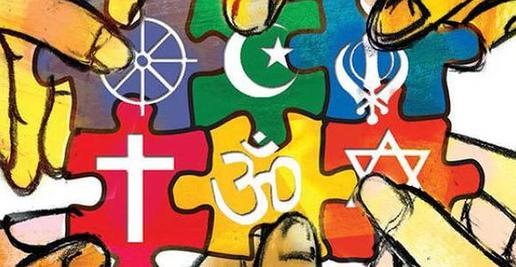
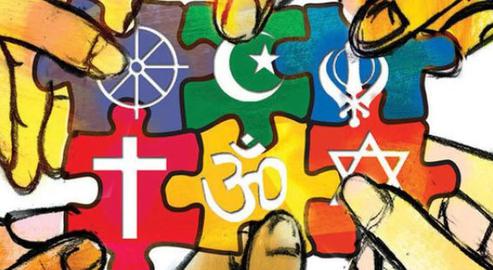
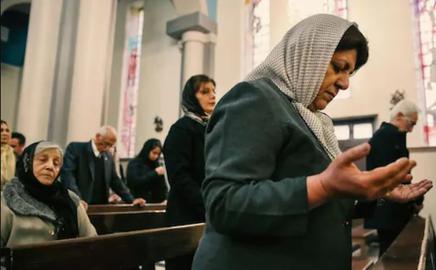
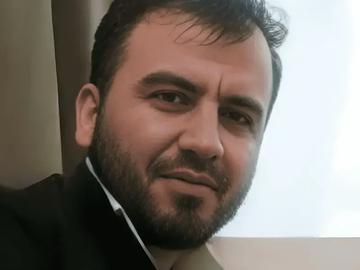





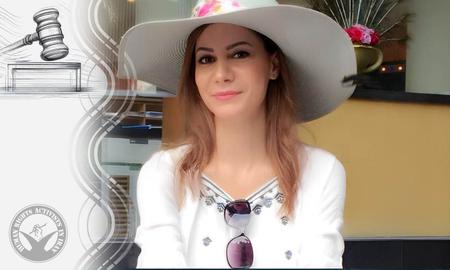


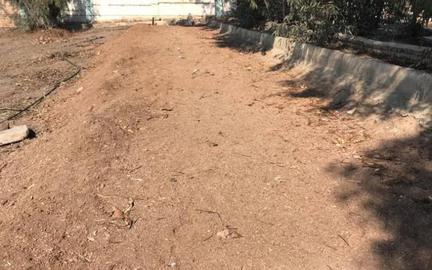

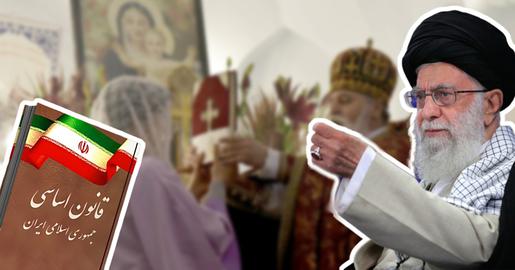

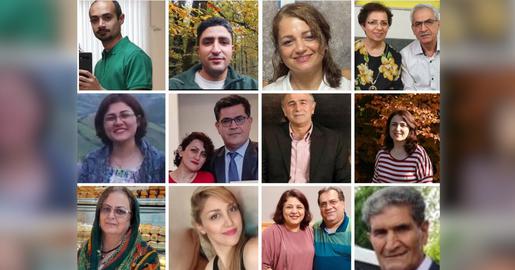

comments